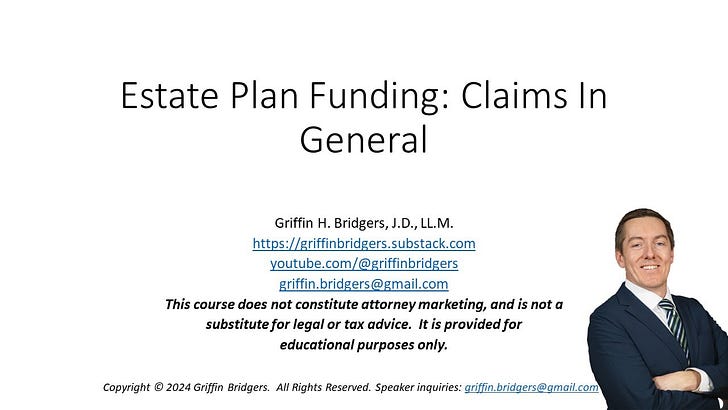A “Better” Guide to Estate Plan Funding, Part 2: Estate Claims
Understanding an intermediate step to keeping the end in mind
This is Part 2 of the series on funding the estate plan. For the first part of this series and a series index, click here.
Table of Contents
Intro
In Part 1, we explored how each individual has two parallel estate plans - (1) nonprobate assets and (2) probate assets - with the first overriding the distributive terms of documents and laws that usually affect only the second. This creates an issue with accurately illustrating the flow of assets through the estate plan.
There is a wildcard, however, that can affect both of these parallel estate plans and their associated buckets of assets. That wildcard is the effect of claims against the estate of the decedent. While some claims, like taxes and secured debts, are reasonably predictable, many others are not. The client who claims they have no debts may have their situation change unintentionally. It may be the case that end-of-life medical expenses, litigation, administrative expenses, and other unsecured claims can take a significant bite out of the inheritances received. And, while nonprobate assets override the will and intestacy statutes, they do not override state laws establishing priorities for the payment of claims.
In this vein, it may be the case that we end up with some form of “reverse intestacy” - especially when probate is avoided - that depletes those nonprobate assets that are not exempt from claims against the estate. In this Part 2, we discuss some foundational ways to minimize this risk or create control.
Note that this discussion is a bit more theoretical, as there is a foundation needed to better understand planning strategies for nonprobate assets. Please do not be discouraged by the lack of specific guidance in this article, as it sets the stage for specific guidance to come later.
Keep reading with a 7-day free trial
Subscribe to State of Estates to keep reading this post and get 7 days of free access to the full post archives.




